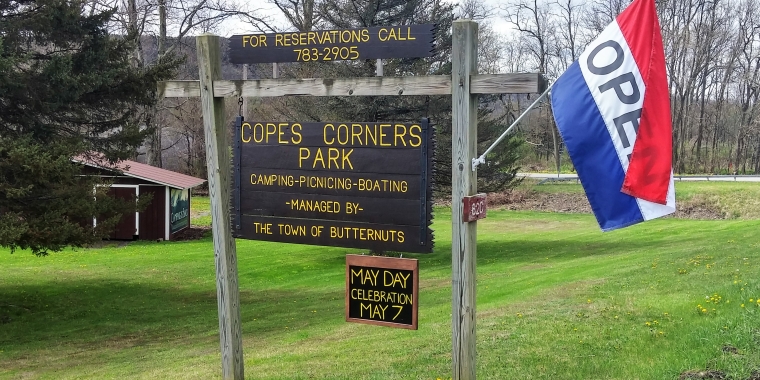
Seward Backs New Medicaid Fraud Task Force
James L. Seward
February 2, 2010
-
ISSUE:
- Medicaid
ALBANY, 02/02/10 – State Senator James L. Seward (R/C/I- Oneonta) today joined senate Republicans in announcing a new Medicaid task force aimed at clamping down on fraud and saving state taxpayers money while at the same time creating a more efficient system for those in need of health services.
“Abuse of our Medicaid system costs honest New York taxpayers billions of dollars each year,” said Senator Seward. “By cracking down on fraud and abuse we can reduce spending and ease the burden on local taxpayers while ensuring those in need receive fundamental services.”
A newly formed Senate Republican Task Force on Medicaid Fraud will hold public hearings this month and issue recommendations prior to the April 1st budget deadline. County government leaders and district attorneys who are on the front lines of fighting fraud will take part in the effort.
“Enhanced Medicaid fraud detection is one area where some savings have already been realized, but I believe it is just the tip of the iceberg. At a time when every dollar counts we cannot allow any breach of the system,” Seward continued.
In 2006, the senate passed legislation sponsored by Senator Seward, which was enacted into law, that:
• Created a new, independent office of Medicaid inspector general by consolidating responsibilities and staff from six agencies into the new office and empowering the Medicaid inspector general with the ability to detect, investigate and recovery improper Medicaid payments;
• Provided county governments with new incentives and access to information to become active partners in the fight against Medicaid fraud;
• Enhanced the capacity of the Department of Health and office of Medicaid inspector general to fight fraud with new, state-of-the-art technology;
• Established new protocols and procedures to ensure the effective sharing of information and evidence regarding Medicaid fraud between the office of medicaid inspector general, the attorney general’s Medicaid Fraud Control Unit, county governments and district attorneys;
• Required health care institutions to implement corporate compliance programs and allowing providers to request advisory opinions to ensure proper billing practices;
• Created new health care fraud offenses to aid in the criminal prosecution of Medicaid fraud.
“The 2006 law has served as a starting point but additional steps need to be taken to further improve fraud prevention, prosecution and recovery,” said Senator Seward. “This task force will focus on innovative approaches that will help clamp down on abuse and produce an efficient system that protects our taxpayers and those who truly need Medicaid to pay for health care.”
Despite the fact that they are on the front lines of the Medicaid program, county officials are saying the state inhibits their efforts to stop fraud at the local level. In fact, the 2009-10 state budget, opposed by Senator Seward, eliminated the eligibility requirements for face-to-face interviews, finger-imaging and asset tests for applicants for Medicaid that are conducted by counties. The interviews are intended to ensure accountability in the system, but will no longer be required as of April 2010.
The U.S. Government Accountability Office estimates that as much as 10 percent of Medicaid expenses are diverted through fraud. The governor’s budget proposes spending a total of more than $51 billion on Medicaid, meaning as much as $5 billion could be fraud in the system.
A report issued last month by the U.S. Department of Health and Human Services ranks New York 26th in the nation in Medicaid fraud recovery, based on the number of fraud dollars recovered per federal Medicaid dollar spent. According to the report, states such as Missouri and North Carolina recover about three times as much in Medicaid fraud, while six other states recover twice as much as New York.
A report last fall by the federal Government Accountability Office (GAO) focused on Medicaid fraud related to prescription medication. The report studied New York and four other states. The GAO faulted New York for “not having a comprehensive fraud prevention framework to prevent fraud and abuse of controlled substances paid for by Medicaid. The GAO report concluded that the cost associated with Medicaid fraud and abuse of controlled substances may be more than the cost of legal prescription drug purchases covered by Medicaid.
“New York needs to do a better job when it comes to Medicaid reform. I am confident that through this special task force we can shore up the Medicaid system and produce a workable, long-term answer that restricts fraud and provides efficient services to those who need and deserve them,” Seward concluded.
-30-
Share this Article or Press Release
Newsroom
Go to Newsroom

